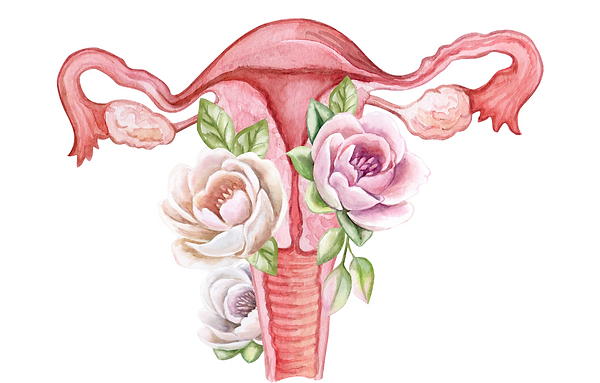Surgical Menopause
What You Need to Know
What is Surgical Menopause?
Surgical menopause happens when both ovaries are removed in a procedure called a bilateral oophorectomy, usually before the natural age of menopause (around 51). While the term "surgical menopause" specifically refers to ovary removal, some people may also experience menopause-like symptoms after a hysterectomy (removal of the uterus) due to the sudden changes in blood flow to the ovaries.
It’s important to know whether your ovaries were removed during surgery, as it makes a big difference in what you’ll experience afterward. In everyday conversations, "hysterectomy" is often used to describe the removal of both the uterus and ovaries, but they are different procedures with different outcomes.

Common Causes of Surgical Menopause
The main causes for surgical menopause include:
-
Cancer prevention or treatment
-
Ovarian cysts or tumours
-
Ovarian torsion (twisting of an ovary)
-
Severe endometriosis
Immediate Effects and Symptoms
When your ovaries are removed, the sudden drop in estrogen, progesterone, and testosterone can cause menopausal symptoms to start right away—often more intense than in natural menopause. Common symptoms include:
-
Hot flushes and night sweats
-
Mood swings or irritability
-
Vaginal dryness or discomfort
-
Trouble sleeping
-
Low libido
-
Fatigue
-
Brain fog or forgetfulness
-
Urinary issues
-
Joint or muscle pain
-
Skin and hair changes
-
Digestive problems
-
Memory issues
Why Symptoms Can Vary
How symptoms affect you can depend on a few things:
-
Age: If you’re under 45 and premenopausal, the sudden hormone loss may cause more severe symptoms.
-
Health: Other health conditions can make symptoms worse.
-
Lifestyle: What you eat, how active you are, and stress levels can also play a role.
For younger women, surgical menopause can feel overwhelming due to the immediate drop in hormones, which often happens overnight.
Long-term Health Effects
Surgical menopause doesn’t just bring short-term symptoms; it can have lasting effects on your health, including:
-
Bone Health: Higher risk of osteoporosis and fractures.
-
Heart Health: Increased risk of heart disease and stroke.
-
Brain Health: Possible link to cognitive decline and dementia.
-
Sexual Health: Ongoing changes to libido and vaginal health.
-
Emotional Wellbeing: Higher chances of depression or anxiety.
These risks can seriously impact your quality of life if not properly managed, so it’s important to stay on top of your health.
Managing Surgical Menopause
There are several ways to manage surgical menopause and its symptoms:
-
Hormone Replacement Therapy (HRT): Often recommended for younger women to replace the hormones lost from ovary removal.
-
Non-Hormonal Options: Medications, supplements, or natural remedies may help if you can’t or prefer not to take HRT.
-
Lifestyle Changes: Regular exercise, a healthy diet, and stress management techniques like yoga or meditation can make a big difference. Avoiding common hot flush triggers (like spicy foods, alcohol, and caffeine) can also help.
-
Health Check-ups: Regular screenings for bone density, heart health, and mental wellbeing are key to managing long-term health risks.
-
Emotional Support: Whether through counseling, Cognitive Behavioral Therapy (CBT), or peer support groups, talking about what you’re going through can be really beneficial.
Everyone’s Experience is Different
No two people experience surgical menopause the same way. Some may struggle with severe symptoms, while others have a smoother transition. What works for one person may not work for another, so it’s important to find what suits you best and work closely with your healthcare provider.
Why Awareness Matters
Unfortunately, many women aren’t told enough about the potential effects of surgical menopause before their surgery. This lack of awareness can leave people feeling unprepared for the challenges they face afterward.
Recovering from surgery is hard enough, but dealing with immediate menopause symptoms on top of it can make things even more difficult, especially if you’re not getting the right support from healthcare professionals. Self-advocacy is an essential part of the journey.
In Summary
Surgical menopause is a major life change that affects your health and wellbeing in many ways. By understanding what to expect and working with your healthcare team, you can find the best ways to manage your symptoms and stay healthy long-term.
Find Support and Learn More
Going through surgical menopause can feel isolating, but you’re not alone. The Surgical Menopause NZ Trust offers helpful resources and guidance specifically for those impacted by surgical menopause.
